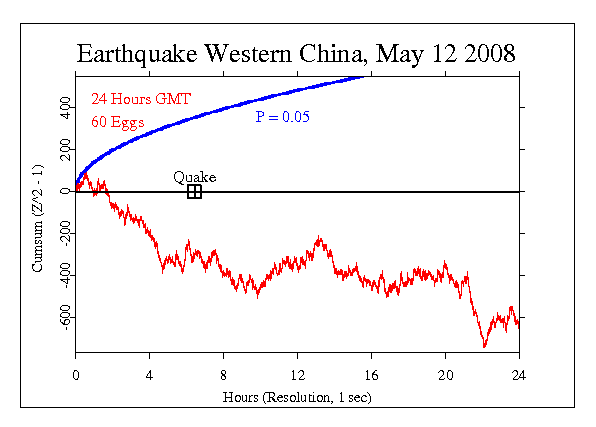|
A powerful earthquake struck western China on May 12, 2008,
toppling thousands of homes, factories, and offices,
trapping students in schools, and killing at least 10,000
people, the country's worst natural disaster in three
decades.
The quake, which was estimated preliminarily to have had a
magnitude of 7.9, ravaged a mountainous region outside
Chengdu, capital of Sichuan Province, just after lunchtime,
destroying 80 percent of structures in some of
the towns and small cities near its epicenter, Chinese
officials said. Its tremors were felt as far away as Vietnam
and set off another smaller quake in the outskirts of
Beijing, 900 miles away.
Landslides, power outages and fallen mobile phone towers
left much of the affected area cut off from the outside
world and limited information about the damage. But
snapshots of concentrated devastation suggested that the
death toll could rise markedly as rescuers reach the most
heavily damaged areas.The powerful initial quake struck at
2:28 p.m. near Wenchuan County, according to China's State
Seismological Bureau. Most of the heavy damage appeared to
be concentrated in nearby towns, which by Chinese standards
are not heavily populated. Chengdu, the largest city in the
area with a population of about 10 million, is about 60
miles away, and did not appear to have major damage or heavy
casualties.
The GCP event was set for the 24 hour period beginning a few
hours before the quake. The main temblor hit at 14:28 local
time, which was 06:28 GMT on May 12. The Chisquare for the
full 24 hours is 85736.737 on 86400 df, for a p-value of
0.945, and corresponding Z-score of -1.598. The graph shows
a persistent downward trend during the whole 24 hour
period.

|